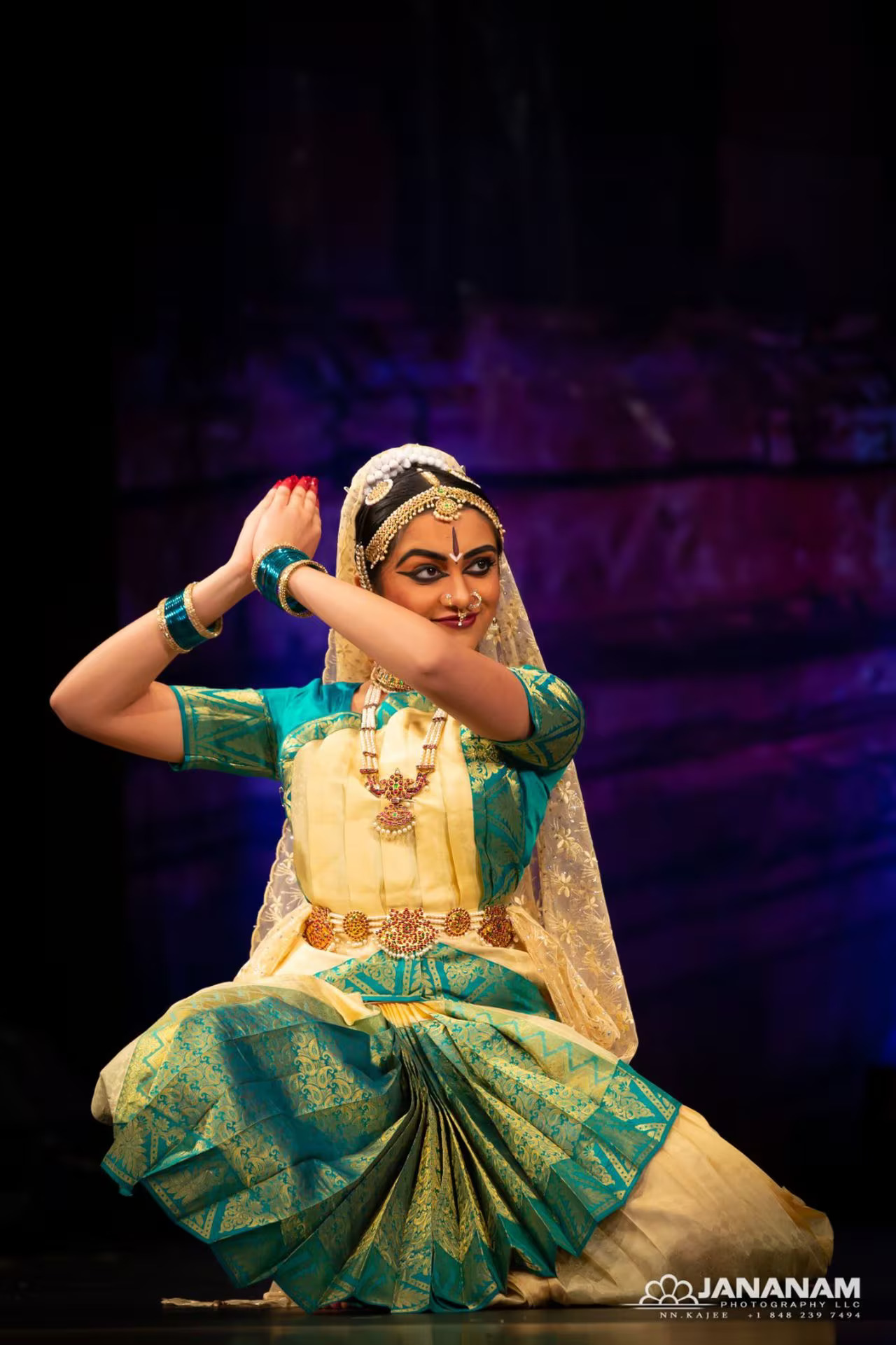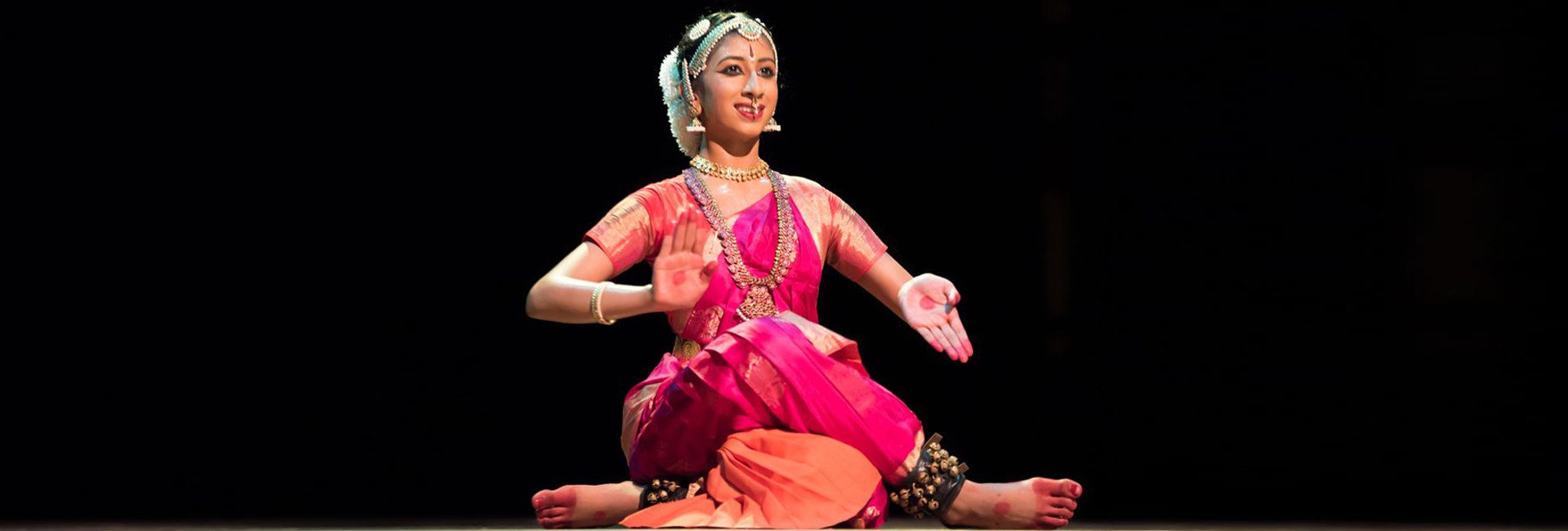(November 11, 2023) Kohl-rimmed eyes, with beautiful mudras, and nuanced facial expressions, there’s a story unfolding on the stage at Piscataway in New Jersey. The 18-year-old Indian American is bringing to life the story of Krishna, an Indian god, who helped protect Draupadi after her husband lost her in a game of dice. This is her 40th performance on stage, ever since she began learning the traditional dance art form of Bharatanatyam at the age of four. In these years, she has dedicated herself to honing a 3,000-year-old Indian dance, ensuring that the legacy of her culture is passed on through the generations.
“When we are growing up in America, away from our origins of India or other areas around there, I think we sometimes lose our connection with our culture,” said Radha, adding, “This is what keeps us tied to that… dancing and teaching this to young kids is a way of preserving this legacy, especially this super old and ancient dance form.”

A senior at Piscataway High School, Radha started learning Bharatanatyam in Greensboro, North Carolina with Veena Argade, and later with Priya Gopal. She later began training under Guru Srimathi Selvi Chandranathan, who trained Radha at Bharata Kala Nrityakshetra dance school in Piscataway. Her Guru got a glimpse of her talent even when she was a kid, and knew that she had the potential to make it big.
With over a million Asians that live in New Jersey, Indian Americans make up the largest ethnic group. And it’s this Indian community in New Jersey that has helped cement the tradition and infuse the culture and history of India in the natives.
It’s been rigorous training for the last 14 years for Radha, and is keen to carry the legacy of Bharatanatyam forward through her art. For her, everything comes alive as she takes the centrestage, and immerses herself in the art form. Growing up, she heard stories and now portraying those stories on the big stage, she feels honoured. Bringing to life the story of Krishna, she considers it a responsibility that she needs to uphold with dignity. “Performing this scene (protecting Draupadi) was very emotional because you are playing these different roles. You are playing the bad king, the good king, and then you are playing the woman who’s trying to save herself and her dignity. And then you are playing the saviour,” the Global Indian added.
At a time when most kids her age prefer dancing to Bollywood tunes, she wants to keep the tradition of Bharatanatyam alive through her performances. “For me, I have been wanting to do this forever,” added Radha, who says that her art form is completely different from what her friends have opted for. “A lot of them do Bollywood dances or things that are seen on TV and commercialized, but this is a completely classical dance, so it is a little different from what you normally see,” said the teenager.
In the last 14 years, Radha’s dance journey has helped her develop a greater appreciation for her culture and heritage. Radha, who is interested in pursuing the sciences in the future, and has also been part of the Princeton W.E.B Du Bois Accelerated Learning Academy, is keen to take the art form to the next level. Her love for Bharatanatyam goes beyond performances as she is also mentoring young students in the art form.




